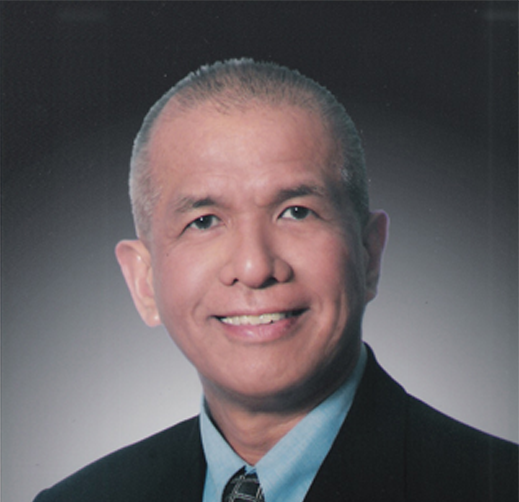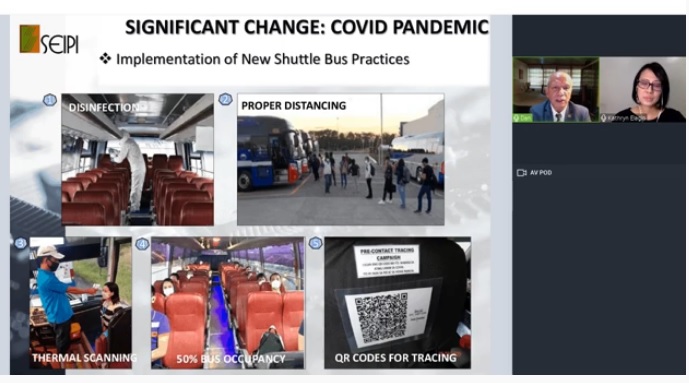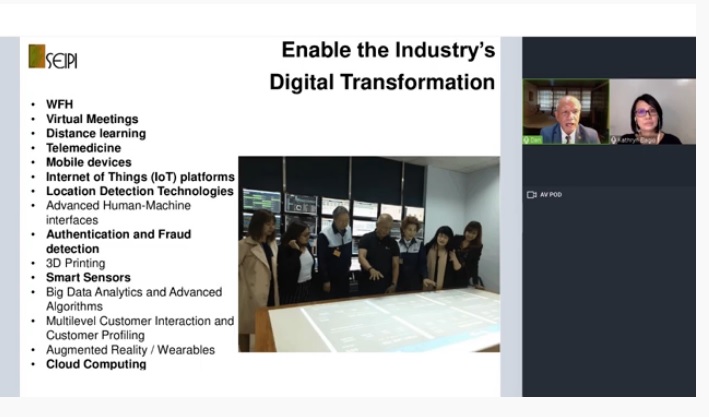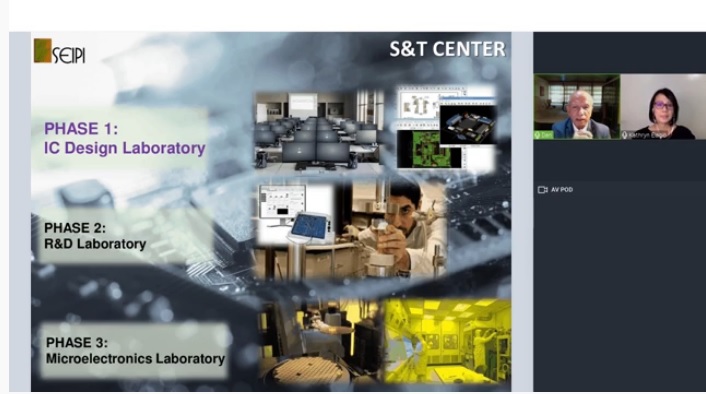By: Kathryn Gerardino-Elagio
The Philippines is an investment destination for the semiconductor and electronics manufacturing due to its strategic geographic location in Asia, cost-competitive wages with a young workforce that is highly skilled, English proficient and on par with excellent workers.
Even before Covid-19 caught the world, unprepared, key new technologies were being rolled out and the manufacturing industry is well into Industry 4.0 upgrades. To stay competitive in this new business, the Philippines semiconductor and electronics environment is implementing new strategies and practices to become at par with its global peers.

Dr. Dan Lachica, President
International Metalworking News for Asia interviewed Dr. Dan Lachica, President of Semiconductor and Electronics Industries in the Philippines Foundation, Inc. (SEIPI), during the recent Virtual ASEAN Electronics Manufacturing Event, organised by Ringier Trade Media Ltd.
SEIPI is the leading organisation of multinational and Filipino-owned semiconductor and electronics companies in the Philippines with 341 members, including manufacturing firms, allied and support industries, and the academe. The organisation’s vision for the Philippines is to improve its competitiveness as a business environment for semiconductors and electronics technologies in the global market.
Changes in the electronics industry amidst COVID-19
The ongoing global COVID-19 pandemic resulted in supply chain disruptions, including workforce and workplace concerns in the Philippines.

"We had to work closely with the Philippine Government Agencies such as, the Department of Trade and Industry, the Philippine Economic Zone Authority and the Inter-Agency Task Force, to figure out how to start-up the operations, without compromising the safety of more than three million direct and indirect workers, as well as maintaining a schedule with strict health protocols," Dr. Lachica said.
These measures included social distancing, daily disinfection, temperature scanning, implementation of an emergency response system, and contact tracing for employees.
"Workers from the semiconductor and electronics industry were also protected financially because we did not want to terminate or lay them off, that will not be fair to them. Therefore, we paid their well-advanced leaves," he explained.
In spite of the changes, Philippines economic and business prospects for this year have improved due to the essential policies and measures put in place to manage the adverse impact of the COVID-19 pandemic, as well as the resilience of the Filipino workforce.
Advanced technologies
In order to thrive in this challenging time, the need to embrace Industry 4.0 has its many benefits, and taking advantage of this is going to generate a competitive edge. However, one must understand that at the core of Industry 4.0 is people and not just technology, as this is an era where the mindset is just as important as skills.

Dr. Lachica said that SEIPI is looking at three stages, "Developing strategies to implement, executing, and preparing for the transformation, and eventually the implementation. Admittedly, our members have different stages of operation. Hopefully, we can help promote Industry 4.0 practices. Some of the steps we're taking would be benchmarking the best practices and partnering with the government trade and industry," he expounded.
According to Dr. Lachica, TESDA is a government-funded training agency that SEIPI work with for the benefit of its workers. He declared, "Of course, we want to pull subject matter experts to deliver the training, hold learning sessions and eventually to facilitate the industry implementation across the board of industry 4.0."
SEIPI is currently forming a science and technology centre. "The science centre will establish three laboratories: IC design, R&D laboratory and a micro-electronics lab that will help do the prototype for the IC designs that come out of the laboratory," Dr. Lachica detailed.
He added, "We also have government academic industry collaboration. We need to work closely with our higher education institutes to make sure that we have a source of talent that will staff the industry. So we work with the government, universities, and also industry members to make sure that this happens so that we can promote the regional development across the board."
Export and investment promotion initiatives
At present, SEIPI has been closely working with key partners in government and private sectors for export and investment promotion initiatives. The association is implementing its roadmap aptly named Product and Technology Holistic Strategy (PATHS), which identifies specific products and technologies the industry must pursue in the growing sectors during the next five years to increase its share in the global market.

"The world is not going to be the same even after the pandemic," remarked Dr. Lachica. "Therefore, the electronics industry will be in a good position to enable digital transformation, driving the extensive use of mobile devices, IoT, smart sensors, and cloud computing," he added.
Dr. Lachica commented, "There are several things we can do to accelerate digital transformation: promote the introduction of investments by introducing new products and technologies, strengthen international partnerships, and continuing to support industry workers."
As part of its strategy, SEIPI, together with its partner institution, De La Salle University-Laguna, is taking the next steps for the development of the Science and Technology Centre (SSTC) to undertake quality research and accelerate the development of the fledgling IC design industry in the Philippines.
Moreover, SEIPI is helping establish a partnership model on sharing Research and Development (R&D) technology between Philippine and French Universities, through SEIPI's collaboration with ACSIEL Alliance Électronique, the biggest electronics industry association in France. Aside from ACSIEL, the group has also been collaborating with several industry organisations in China, Singapore, Taiwan, and the USA for events and trade promotions, B2B and R&D projects.
In this unique moment, semiconductor and electronics companies in the Philippines can learn and progress more quickly than ever before. The ways they learn from and adjust to today's crisis will deeply influence their performance in tomorrow's changed world, providing the opportunity to retain greater agility as well as closer ties with customers, employees, and suppliers. Those that are successfully able to make gains will likely be more successful during recovery and beyond.

 iConnectHub
iConnectHub
 Login/Register
Login/Register Supplier Login
Supplier Login


























